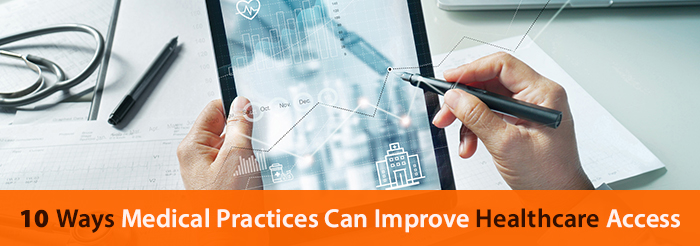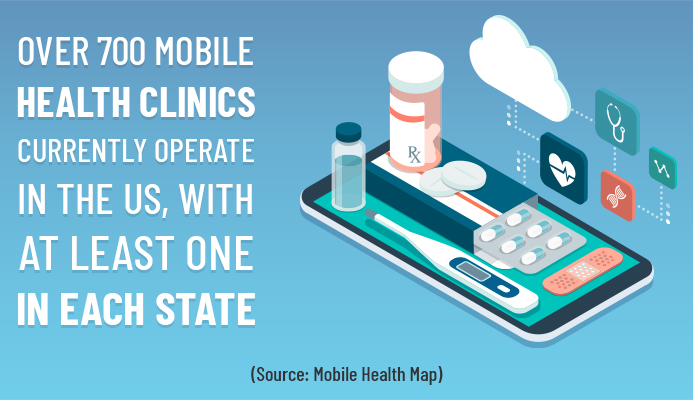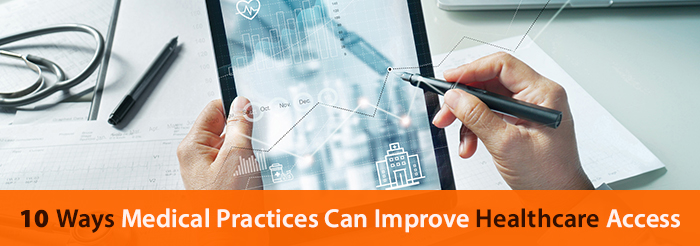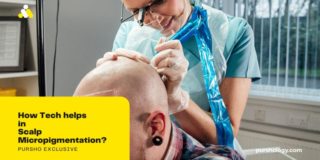
Healthcare is evolving. After years of stagnation, the call for high-quality and cost-effective care accessible to all is beginning to be answered. There is incremental progress towards providing meaningful healthcare and innovative delivery models, with promising developments in the AI-based healthcare market.
However, despite visible signs of progress, issues related to healthcare access continue to escalate. Middle- and low-income patients continue to struggle in receiving affordable and accessible care. When a patient cannot access healthcare, it often becomes impossible to receive the right type of care, harder to build relationships with a provider, and creates unachievable healthcare goals.
Before we discuss the different ways to improve healthcare access within the hospital, it is important to understand what healthcare access is, and why quick and affordable access to health services so critical.
What is Healthcare Access?
Access to healthcare refers to the ease with which a patient can obtain essential medical services. Several social, economic, and cultural factors influence healthcare access.
Access to medical care is a multi-dimensional challenge, and so far, marketers and providers have not been able to find a ‘one size fits all’ solution. Improving just one aspect of healthcare delivery is not enough to fix this deep-rooted problem. For instance, improving access to healthcare for a cancer patient is only beneficial if there are enough trained oncologists and nurses with the necessary equipment. Similarly, improving access to diagnostic tests is only useful if complemented by appropriate patient education. When it comes to more complex treatments, the level of sophistication required for successful care delivery becomes even more evident.

How to Improve Healthcare Access?
Medical outcomes improve with better access to health systems. Here are some of the tested and effective ways to improve healthcare access:
- Be available:Effective healthcare comes from access to the same provider consistently, knowing a patient’s history from each visit. A lack of continuity causes medical errors, reduces compliance, and is troublesome for the patient’s critical ailments. Try to ensure that your patients only see you during and after office hours. Providing around the clock healthcare access may seem overwhelming. Still, it is more challenging to see 7,000 patients randomly than to care regularly for 1,000 patients you are familiar with. When patients know you are available to assist at any given time, they feel reassured and cared for, in-turn respecting your time.
- Quick and easy appointment scheduling: Conduct this experiment in your medical practice: Call your front office to make an appointment and imagine that you are an ailing patient with a hearing or language problem. This experiment can help you to improve on any issues that you or a patient may face, as well as improve response time from your staff. Often patients encounter busy phones, long on-hold times, or no answer at all due to busy offices. Some patients prefer to schedule appointments online or by e-mails. Using appointment-scheduling software may help relieve the burden at the front desk and reduce on-hold times.
- Try to see patients as early as possible: Often, office hours dictate providers’ availability. Most policies allow providers to be available at certain times or days or even allow new patients only on certain days. Such policies erect barriers between patients and providers. By offering the earliest appointment to a patient, you can improve access to healthcare services and provide timely care.
- Manage appointments: By scheduling too manyappointments in a day, quality patient interaction is inhibited. By having too tight of a schedule, your patients are prevented from having good access to health services. Appointment volume must be planned well. Leave time in between appointments to allow for more 1 on 1 focus time with patients. The best way to manage appointments is to take care of patients’ needs regularly. For instance, patients who are satisfied during the current visit are less likely to call back in a week with a new question or a request.
- Use of e-mail to answer patients’ questions: Using e-mail to answer patients’ questions is also helpful to improve health care access. You can also use emails to deliver test results when an exam is not required. Instead of having patients come to your office for routine follow-ups, it is important to encourage patients to send blood reports via e-mail. While only a few insurance providers cover virtual visits, a lot of patients will be happy to pay out-of-pocket for quick and hassle-free consultations.
- Partner with pop-up clinics:Most pop-up clinics rely on volunteer doctors to provide care to a high volume of patients at little-to-no cost. While pop-up clinics might help meet your patients’ immediate health care access needs, they often operate on a first-come, first-serve basis. These clinics make a difference in the lives of uninsured patients by providing them with quality care and connecting them to providers that will help them better manage their health.
- Build strategic tie-ups with retail clinics: Visiting the ER for a stomachache is usually not the best choice. It can become expensive and cause a lengthier waiting time. The best way to create rapid increase in walk-in or retail clinics is by providing a sustainable alternative. According to a report, CVS pharmacies have over 1,000 “MinuteClinic’s” staffed by nurses and assistants who offer quick and affordable no-appointment services.
- Associate with Student-run facilities: Student-run medical facilities associated with medical schools take medical care to the next level. In addition to giving medical students the much-needed experience in providing care to vulnerable populations, they are often located in impoverished areas. These clinics provide patients with free and easily accessible care. While valuable in providing quick and low-cost care to needy patients, these clinics are often limited in the type of care they can provide to patients.
- Promote your services covered under insurance:The MIPAA law, passed by Congress in 2008, provides grants for medical practices serving low-income seniors with better healthcare access to preventive services. Some of these services consist of a physical exam to detect diseases, promote health and wellness, and provide specialist referrals. They also include several diagnostic and preventive screenings for diabetes, depression, and cardiovascular issues.
- Turn to telehealth: Many medical practices are turning to telehealth to improve healthcare access. Many rural areas in the US are limited to providers and specialists, which makes providing quick and cost-effective access to healthcare a problem. Telehealth can give patients quicker access to specialists- as a centralized command center schedules and maintains appointments, allowing patients to see specialists that offer flexible appointment slots.
Challenges in Improving Healthcare Access
Despite the importance of improving access to healthcare, it is not a reality for most patients across the country. Between appointment scheduling issues to trouble getting to the hospital, healthcare access has associated challenges. Some of the well-known ones are:

1. Inconvenient office hours
Many medical practices offer typical office hours or appointment slots for patient visits. But for some parents, a medical practice that is open from 8 a.m. to 6 p.m. on weekdays is not always useful. Patients need convenient and flexible appointment slots that allow them to visit the provider outside of the common work schedules.

2. Lack of awareness about the local medical practices

Often, healthcare access issues are not about appointment hours. Instead, they are about knowing the good medical practice where patients will be given the right care. The majority of patients don’t know which local healthcare facility they should visit for different symptoms. Providers must deliver the proper education to patients to identify good medical practice for their needs. For instance, urgent healthcare situations require a visit to the ER, while a sprained leg may be treated in an urgent care clinic.
3. Transport Issues
Even when a patient knows the right facility for a specific health issue and can schedule an appointment, transportation problems can delay a visit to the provider. Physically challenged patients who cannot drive, or financially restricted patients who cannot afford to travel to the facility often go without care. As per an AHA report, lack of transportation is the reason approximately 3.5 million patients do not receive quality healthcare services.
4. Shortage of Providers

Patients living in rural areas often struggle more to access healthcare services than patients living in suburban or urban areas. The biggest challenge in rural areas is the shortage of qualified and experienced doctors. Remote locations, small size of healthcare facilities, and constrained financial resources often result in clinician shortages.
Conclusion
Whether your goal is to improve scheduling appointments, or a lack of patients receiving quality visits, working to remove the challenges is an essential part of improving healthcare access. There will never be a one-size-fits-all solution, but patient experience and medical outcomes can be improved by removing some of the most common barriers to care.
Interested in knowing more ways to improving healthcare access, contact experts at Practice Builders.

Looking For Healthcare Marketing Agency For Hospitals , Clinics, Doctors?
Call Pursho @ 0731-6725516




